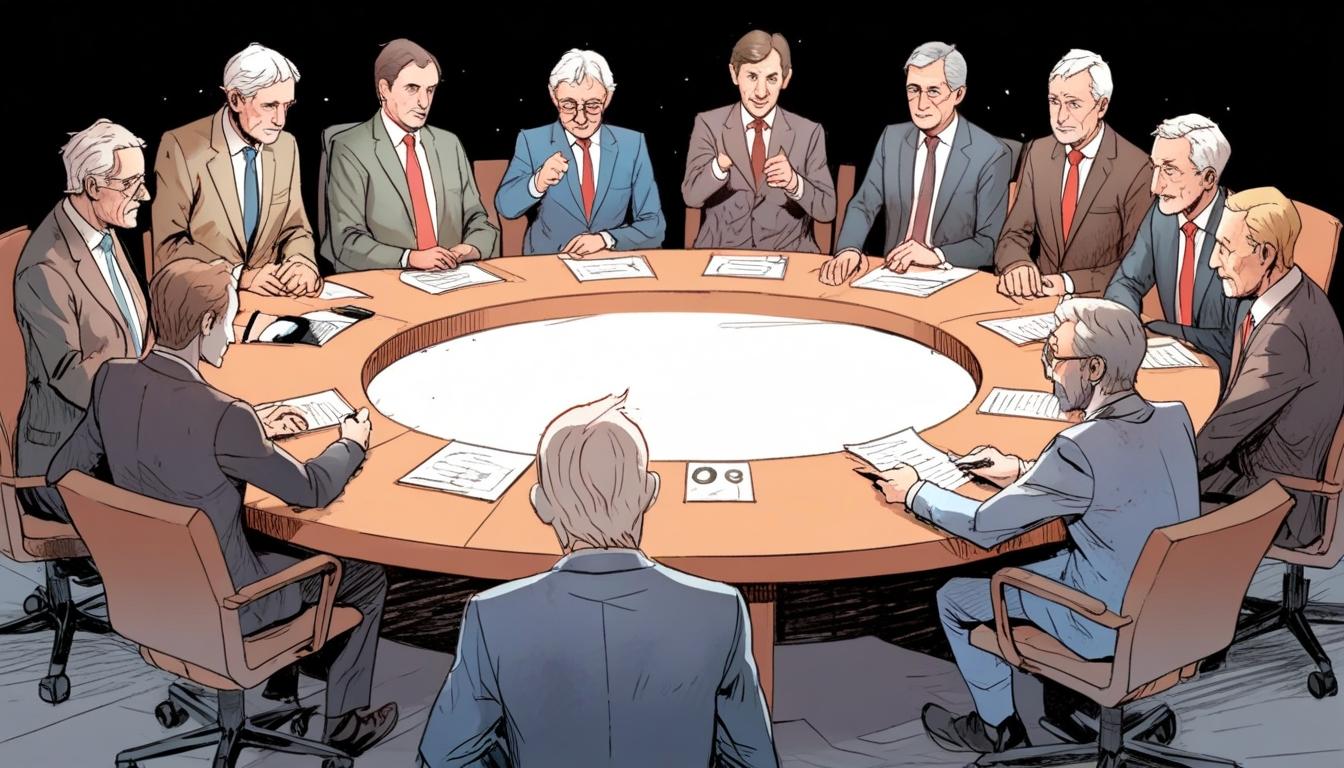Downing Street has firmly rejected recent claims suggesting that cocaine was present during a train journey involving Sir Keir Starmer, French President Emmanuel Macron, and German Chancellor Friedrich Merz. The allegations, which emerged after a video showed Macron removing a white object from a table, were dismissed as “fake news” by the British Prime Minister’s official spokesman. The spokesperson noted the lack of clarity regarding the origins of such misinformation but pointed to a pattern of similar narratives, particularly from Russian state sources, amidst growing desperation regarding the conflict in Ukraine.
The controversy ignited when Russian foreign ministry spokeswoman Maria Zakharova shared the aforementioned video, implying that the leaders had neglected to conceal drug paraphernalia prior to the arrival of journalists. In a swiftly issued clarification, the Elysee Palace described the object in question as merely a tissue, labelling the accusations as a deliberate attempt at misinformation. The French government warned that the spread of such disinformation served as a tactic aimed at undermining European unity.
Echoing these concerns, German officials and members of the CDU party expressed alarm over the systematic use of disinformation by adversaries to weaken democratic institutions and public trust. This incident reflects broader concerns regarding the manipulation of narratives in the context of the ongoing Russian invasion of Ukraine, as European leaders converge to show solidarity with Ukrainian President Volodymyr Zelenskyy.
In the wake of these claims, Macron has been vocal about the true aggressor in this conflict. He stated emphatically that if there is any risk of precipitating World War III, it rests squarely with Russian President Vladimir Putin. This sentiment captures the heightened tensions surrounding the debate on support for Ukraine, particularly as European nations navigate the complexities of responding to Russian aggression while maintaining domestic stability.
Alongside discussions of misinformation, the objectives of unity and support for Ukraine have been at the forefront of European diplomatic efforts. Recently, Prime Minister Starmer convened a summit of European leaders in London to strategise on strengthening military assistance to Ukraine. This included a substantial commitment of £1.6 billion in export financing for air defence missiles, which underscores a unified commitment to both national and regional security in the face of escalated hostilities.
As disinformation campaigns continue to proliferate, France has ramped up its countermeasures. Initiatives such as Viginum aim to combat the spread of false narratives, particularly those linked to both Russian and far-right American entities. The proactive stance showcases an understanding that the battle for information is as crucial as the actual military confrontation influencing public perception and political dialogue within Europe.
In light of recent events, the resilience of European unity remains a focal point in the face of external challenges. The leaders’ swift denials and commitment to addressing disinformation reveal not just a reaction to isolated incidents, but a broader strategy aimed at preserving the integrity of democratic discourse and fostering solidarity in times of crisis.
Reference Map:
- Paragraph 1: [1]
- Paragraph 2: [2]
- Paragraph 3: [3]
- Paragraph 4: [4]
- Paragraph 5: [5]
- Paragraph 6: [6]
- Paragraph 7: [7]
Source: Noah Wire Services
